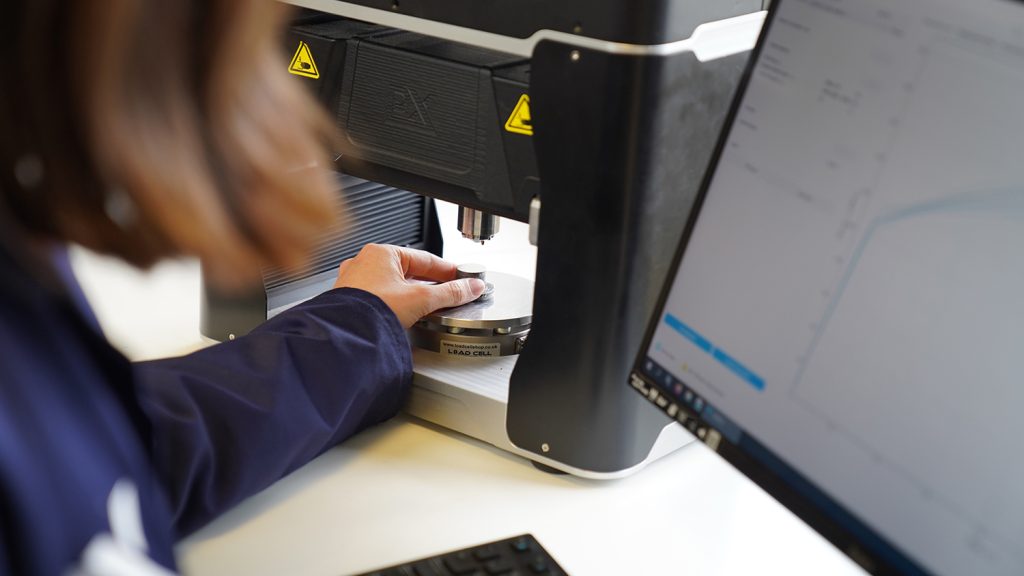Airbus and Plastometrex are collaborating to support the standardisation of Plastometrex’s mechanical testing technique Profilometry-based Indentation Plastometry (PIP).
Used to test a material’s tensile strength, yield strength, and ductility, contributing to the safety and performance of aeroplanes, PIP sample preparation can be completed in just a few minutes and is easier and more straightforward than traditional tensile testing.
By using PIP, Airbus hopes it will accelerate testing workflows and be able to generate more data, resulting in innovation at high levels of safety.
Airbus uses materials including carbon fibre reinforced polymers (CFRP) in their primary structures, which require rigorous testing during the engineering process.
Traditional testing requires test pieces with precise dimensions, which adds expense and slows down workflows. Where samples are too small or irregularly shaped, testing cannot be carried out.
In comparison, PIP sample preparation tests specimens directly. It tests at a fine scale that can be used on pieces that would be too small or wrongly shaped for traditional tensile testing.
PIP enables the extraction of data, producing deeper insights into the behaviour of the materials. For example, 160 PIP tests can be fitted onto a standard ASTM E8 tensile coupon, producing information about material homogeneity that would be obscured by the single stress-strain curve obtained if tensile testing was used.
“This partnership highlights the transformative potential of our technology, enabling faster, more versatile and data-rich testing,” said Plastometrex CTO Jimmy Campbell.
“Together, we’re setting a new standard in mechanical testing that aligns with the rigorous demands of the aerospace industry.”






